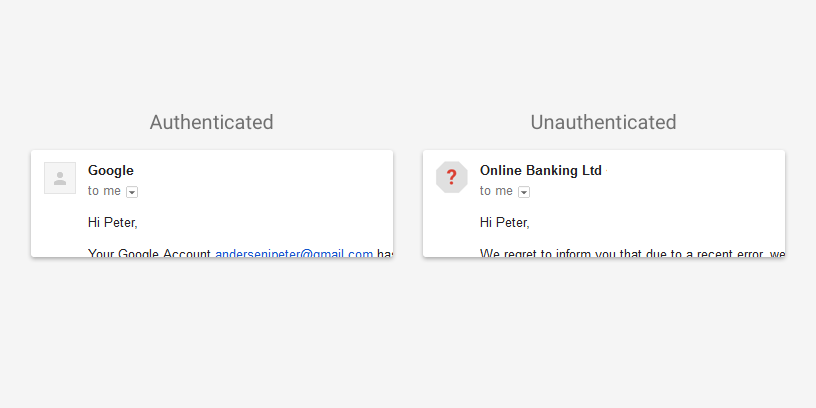
Google always takes care of security, the last features announced by the IT giant will warn Gmail users when they receive an email message from an unauthenticated sender.
Google announces several new warnings that will be displayed when users will receive messages containing potentially dangerous links.
Starting this week Gmail users that access the service through their browser or via an Android device will display a question mark over a sender’s profile photo or user logo if the service cannot authenticate the sender with Sender Policy Framework (SPF) or DKIM.

“On the web, if you receive a message with a link to a dangerous site known for phishing, malware, and Unwanted Software, you’ll begin to see warnings when you click on the link. These warnings are an extension of the Safe Browsing protection available to various web browsers today.” states the announcement published by Google.

Google clarified that “Not all affected email will necessarily be dangerous,” anyway it is important for a proper security posture to be extra careful about interacting with emails from unauthenticated sources.
Google is spending significant efforts against threat online like malware and phishing, and the IT giants also worked hard to protect its user’s privacy through the adoption of encryption.
In March, Google improved the Safe Browsing notification messages using a full-page warning related to state-sponsored hacking.
“Safe Browsing already protects Gmail users by identifying potentially dangerous links in messages. Starting this week, Gmail users will begin to see warnings if they click these links, further extending this protection to different web browsers and email apps. ” States the security advisory published by Google.
Back to the last security improvement announced by Google, the company plans to release it in a couple of weeks. The gradual rollout (potentially longer than 3 days for feature visibility) will impact all Gmail users.
[adrotate banner=”9″]
(Security Affairs – Google, Safe Browsing)